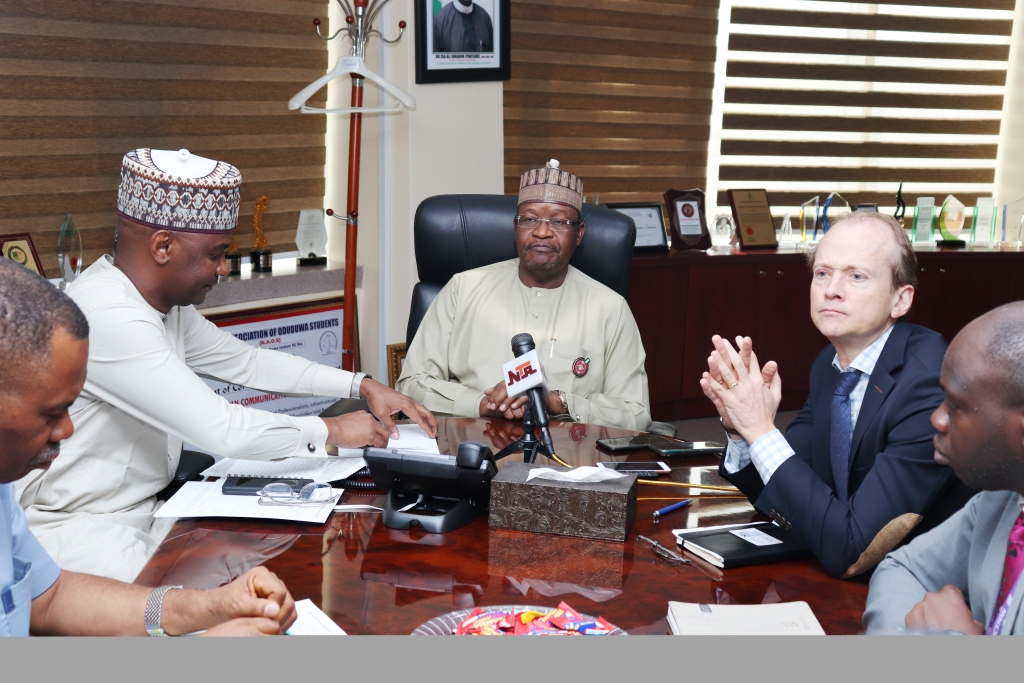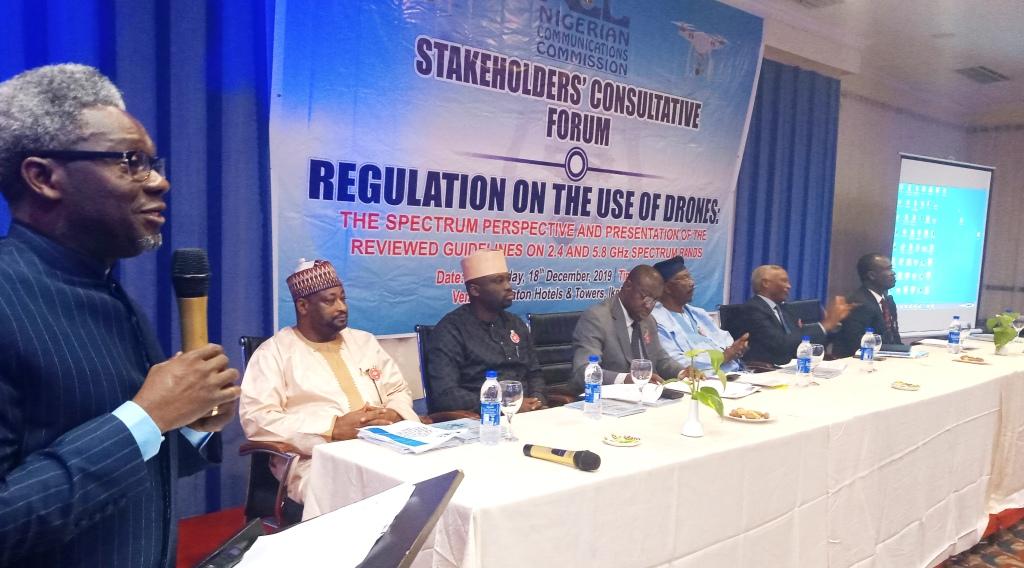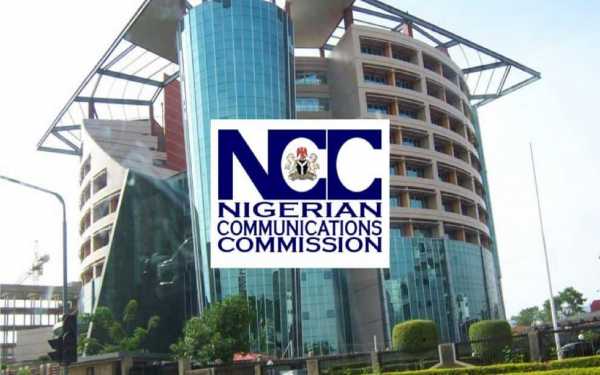There are several strategic policy compliance monitoring carried out by the telecoms regulator in 2019.
The following are worthy of mention:
Monitoring of Compliance with the Commission’s Direction on Routing of a Minimum of 10% of Interconnect Traffic by Mobile Network Operators (MNOs) Through Interconnect Exchange Licensees
Pursuant to the directive that Mobile Network Operators (MNOs) and interconnection clearing houses should forward their interconnect traffic to the Commission on monthly basis, the Commission received submissions from Mobile Network Operators (MNOs) – MTN, Airtel, EMTS, Globacom and Interconnect Clearing Houses (ICN, Breeze, Exchange Telecoms, Nicoon X), for the Quarter 4 of 2018.
The analysis of the report showed that only Globacom did not comply with the direction of routing at least 10% of its traffic to the Clearing Houses. Consequently, the Commission took appropriate action against the operator.
Compliance Monitoring of Guidelines on Sim Replacement
In Q1, 2019 the audit exercise on Subscriber Identification Number (SIM) Replacement Guidelines in the Nigerian Telecoms Industry took place against the background of prevalence of complaints regarding illegal SIM Swap by fraudulent individuals in the telecoms market. The Commission had established a Guideline for SIM Replacement which came into effect on 9th June, 2017.

Consistent with NCC mandate as enshrined in Section 89 of the Nigerian Communications Act (NCA) 2003, the Commission prepared a quarterly audit exercise of MNOs’ platforms with a view to ascertaining the level of compliance with the Commission’s Guideline on SIM Replacement. Requirements and procedures were outlined by the Commission to safeguard subscriber’s identity from fraudulent activities of some criminal elements in the telecoms sector. The audit exercise was considered very critical in reducing instances of fraudulent SIM upgrade and replacement which accounted for financial loss and security breaches in the country. The appropriate departments of NCC are currently working on processes to address and manage the findings from the audit exercise in a manner that will quantifiably address the challenges of fraud around SIM cards.
Report of Q1, 2019 on Technical Audit of Operators’ Performance of the Mobile Number Portability (MNP) Scheme
Consistent with the mandate of NCC’s Compliance Monitoring & Enforcement (CME) Department, to monitor key activities relating to the performance of all stakeholders on the Mobile Number Portability (MNP) policy and given the need to ensure a seamless porting process with strict adherence to the MNP Regulations 2014 and the Business Rules & Port Order Processes, a technical audit team carried out a comprehensive compliance audit exercise of the MNP Platform from 12th – 14th March, 2019.
The key objectives of the Committee were as follows:
- To review the level of success National Porting Clearinhouse (NPC)’s migration of the MNP Platform to its new technical partners, Porting Access Ltd;
- Conduct an in-depth review of planned and unplanned technical faults that occurred within the period under review;
iii. Audit ‘Validation Responses (T2) & Deactivation Responses (T4)’ which have timelines of 2 hours and 1 hour respectively for the period under review;
- Review all porting rejections by the donor to ensure that these rejections are justifiable in the context of MNP Business Rules;
- Review the current status of outstanding MNP fees owed to the NPC administrator by Mobile Network Operators (MNOs);
- Review all emergency repatriations and ‘Return to Block Operator’ transactions for the past 5 months (October, 2018 – February, 2019).
- Key Actions Taken

(There meeting was a follow-up to discuss how to address the issue of Right of Way (RoW) and other similar challenges confronting the telecoms industry. You will recall series of report you have done in recent past around the issue of RoW).
Based on the findings of the audit exercise, the Commission directed Mobile Network Operators to carry out the following:
- Mobile Network Operators should ensure the fields for inputting Mobile Station International Subscriber Directory Number (MSISDN) or SIM number in porting request forms are only 10 digits. In addition, MNOs should educate and train front-end staff to ensure the correct donor network and MSISDN are specified before details are sent to NPC;
- That the MNP Industry Technical Working Group will discuss and impose a 45 day port restriction period for newly activated SIM cards;
III. That Mobile Network Operators henceforth strictly comply with the conditions for ‘Emergency Repatriations’ and ‘Return to Block Operator’ in line with Provisions of the MNP Business Rules, as well as the consequences for non-compliance;
- That Mobile Network Operators remove the power to carry out ‘Emergency Repatriations’ and ‘Return to Block Operator’ from their front end agents to mitigate the emerging trend of abuse of laid down processes and procedures;
In view of the relatively low amount of porting transactions, the Commission will carry out robust awareness campaigns to enlighten consumers on the availability of Mobile Number Portability.
Proposal to organize two Regional Stakeholders’ Parliaments in South East and North East Zones
The Proposal was approved by Management.
1st Quarter Meeting of the Industry Working Group (IWG) on Multiple Taxations/Regulations Held On Monday 14th March, 2019, Lagos
The IWG is a platform used by relevant stakeholders to deliberate quarterly on issues relating to multiple taxation and regulation in the telecom industry. The 1st Quarterly meeting held on 14th March, 2019.

The meeting amongst others extensively deliberated on the following issues:
- a) The embargo placed on issuance of Right of Way permit to operators by Lagos State Infrastructure Maintenance and Regulatory Agency (LASIMRA);
- b) The incessant demand for payment of levies for certification from operators for building of new and existing BTS by Nigerian Civil Aviation Authority (NCAA);
- c) The continuous demand by state Ministries of Environment for Environmental Impact Assessment (EIA) certification and payment against the provision of the EIA Act;
- d) The continuous demand from operators by some state agencies on environmental hazards etc.
Key resolutions after the deliberations are as follows; that:
- The Association of Licensed Telecom Operators of Nigeria (ALTON) should reconcile its records, review all the NCAA laws at its next meeting and demand for evidence of payment of owners of high-rise buildings across the country with a view to strengthen its position against tax discrimination;
- The Commission should invite the Director in charge of Environmental Impact Assessment (EIA) from the Federal Ministry of Environment to its Regional Stakeholder Parliament on Multiple Taxation and regulation;
- ALTON should review its position with respect to class action against State Government Agencies to avoid jurisdictional conflict;
- The Commission should write to Lagos State Government for its intervention on the embargo on Right of Way (RoW) by LASIMRA.
- Unauthorised Transmission on the 5.4GHz Frequency Band By Trefoil Network Limited

The Commission visited the site of Trefoil Network Limited operation in Abuja after the company made a presentation to the Commission in respect of its application for a regional Private Network Link (PNL) license which it intended to deploy using the unlicensed 5GHz band. However, monitoring checks revealed that Trefoil was transmitting on the licensed 5.4GHz band for its Internet service provision. A pre-enforcement notice was sent to Trefoil accordingly. In its response letter dated March 5th, 2019, it informed the Commission that it had vacated and desisted from the licensable portion of the band.
Within the period under review, there was enforcement action against Illegal Users of 5.4GHz Frequency Band Causing Interference on IPNX Nig. Ltd Network
The Enforcement Unit of the Commission received a referral from Spectrum Administration Department regarding a complaint of frequency interference assigned to ipNX Nigeria Limited on the 5.4GHz band affecting its services in Abuja, Kano, Lagos Ibadan and Port Harcourt. Consequently, the Commission issued pre-enforcement notices to the affected companies to vacate the frequency band on or before March 10, 2019. Following the notices, while some companies notified the Commission of their compliance, others failed to respond. Consequently, the Commission carried out an enforcement action against the illegal usage of 5.4GHz in Kano on March 12th, 2019 and in Lagos on March 26th, 2019 respectively to verify the claims by the companies/operators. The Companies visited in Kano were found to have vacated the 5.4GHz band that were causing interference.
Enforcement was effected against three (3) companies found to be in violation in Lagos after the enforcement exercise undertaken for that purpose. Recovered items included 2 SDR Radio antennas and 2 Power over Ethernet (PoE) Power Packs in the operation and thereby enabled the successful shut down of the offending radios.
Unilateral Disconnection of Exchange Telecommunications Limited by Airtel Networks Limited
The Commission found Airtel Networks Ltd to have contravened the provisions of the Quality of Service (QoS) Regulations 2013 and Enforcement Processes Regulations 2005, by disconnecting Exchange Telecommunications Limited without the Commission’s approval. Airtel was sanctioned on March 28, 2019 to pay the sum of ₦121, 000,000 to the Commission.









